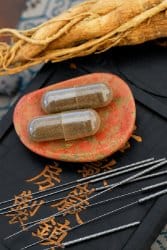by Dr. Kristin Schnurr, ND
Many of you may have heard the show, ““Bacteria in your gut affects your mental health.” which aired on the CBC on October 11, 2013. If you missed it, here is the link: CBC.
Listening to this show reinforced for me the importance of ensuring gastrointestinal health for myself, my family and for everyone I work with. We already know that healthy gut flora promotes health by strengthening immunity, improving our digestion and absorption of nutrients, and by promoting healthy metabolism and preventing obesity.
Too much of the wrong bacteria can make us ill and too little of the healthy bacteria can leave us vulnerable to illness. Symptoms of dysbiosis or an imbalance of good bacteria intestinally include: digestive upset, bowel irregularity, fatigue, allergies, skin conditions, headaches, autoimmune conditions, anxiety and depression.
Recently, there has been significant research emerging on the connection between gut flora and mental health. A recent study in the journal Gastroenterology shows that healthy gut bacteria play a major role in mental health and pain sensitivity. Scientists at UCLA showed a direct link between probiotics consumed and elevated amounts of the important mood regulating neurotransmitters: Serotonin and GABA.
Serotonin is a neurotransmitter primarily found in the gastrointestinal tract and the central nervous system. It regulates intestinal movement, mood, appetite, sleep, muscle contraction and cognitive function such as memory. GABA is the chief inhibitory neurotransmitter in the central nervous system. It plays a role in regulating neuronal excitability throughout the nervous system. People with low serotonin production typically suffer from depression. And, people with low GABA production typically experience anxiety.
This research is important as it points to the importance of addressing gastrointestinal health in the management and treatment of anxiety and depression. As Gregor Reid, PhD, a professor of microbiology, immunology and surgery at the University of Western Ontario stated, “There isn’t a drug on the market that can match probiotic bacteria for its far-reaching implications on health.
How to Cultivate Healthy Gut Flora
- Our first microbes are introduced in the vaginal canal after the natural birth process, and are delivered through breast milk. We inherit our gut flora from our mother at birth, where it settles in the baby’s sterile system and becomes the microbiome of the gut. Breastfeeding is another way the mother passes her beneficial flora to her baby. Bottle fed babies acquire completely different gut flora than those that are breastfed.
- Healthy digestive microbes come from ingesting uncooked and live culture fruits, vegetables, and dairy products that contain live probiotics. Routinely eating some fermented foods such as yogurt, kefir, sauerkraut, kimchi, miso or kombucha can also assist in replenishing healthy bacteria. It is important to ensure the products are guaranteed to contain live cultures since many brands destroy the essential bacteria with high temperature processing during the manufacturing process. If it’s in the fridge at the store it is more likely to contain live culture, if it’s on the shelf it has been pasteurized. Making your own yogurt, sauerkraut, kombucha or kefir assures an active bacteria content.
- For some people, the level of depletion of beneficial organisms in the digestive tract requires the consumption of a daily probiotic supplement in order to replenish beneficial bacteria. It is important to consider that infants, children and adults require different combinations of specific bacteria. And, it is important to be cautious with dosing in the treatment of skin and autoimmune conditions. A ND will help you determine the right bacterial strains and optimal dosing for your individual health.
Dr. Kristin Schnurr, ND is at the Sage Clinic in Victoria BC. www.sageclinic.com www.drkristinschnurr.com



